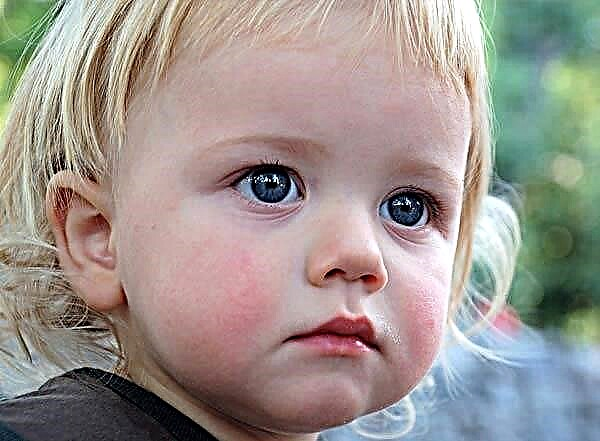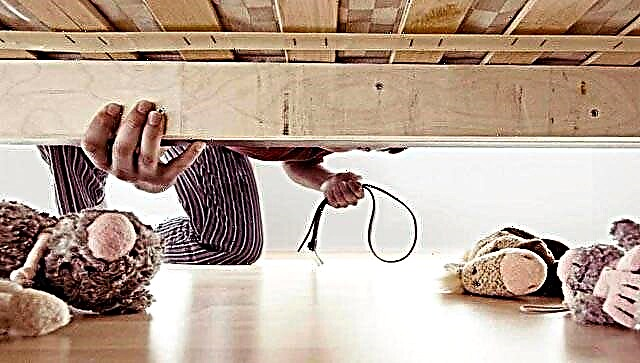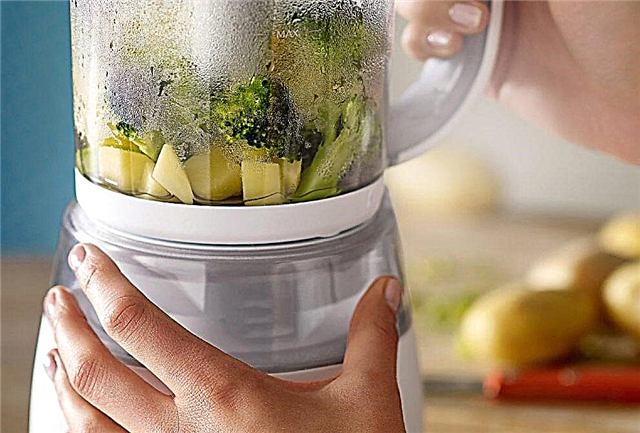Children from 1 to 3 years of age are prone to diarrhea for various reasons, the most common of which is eating inaccuracies. The severity of this condition can be different, therefore diarrhea affects the general condition of the baby's body to a greater or lesser extent. This is an unpleasant experience, but almost all parents face this problem at least once at this stage in their child's life.
What is diarrhea?
Diarrhea is frequent watery stools. Typically, diarrhea in children under one year of age and older is the result of a stomach infection and usually only lasts a few days.
But the term “diarrhea in a one year old child” refers to a condition that lasts more than seven days. With her, children have watery stools 2 to 10 times a day, feces may contain pieces of undigested food.
Symptoms
Think first about what is normal for your child. Some children have several bowel movements per day, others have no bowel movements for several days - and this is normal. Accidental one-time stool loosening is not a cause for worry. But if the nature of the baby's bowel movements suddenly changes, that is, he pushes more than usual, and looser, more watery stools come out, then this is most likely diarrhea.
While a severe bout of diarrhea may sound alarming, rest assured that most cases do not pose a serious health threat until your little one shows signs of dehydration.
If the child is generally healthy and receives a lot of fluids, diarrhea in most cases will go away in a couple of days.
Causes of diarrhea in children
The list of possible causes is long. Diarrhea is caused by viruses or a bacterial infection.
 This condition can appear as a result of the vital activity of the parasite, taking antibiotics or improper nutrition of the child.
This condition can appear as a result of the vital activity of the parasite, taking antibiotics or improper nutrition of the child.
- viral infection. Rotavirus, norovirus, adenovirus and astrovirus cause diarrhea, vomiting, and abdominal pain. A child's temperature may rise to 38 ˚Ϲ, chills;
- bacterial infection. Bacterial food poisoning can cause diarrhea. Common bacteria that cause food poisoning are staphylococci, salmonella, shigella, E. coli and campylobacter. If your baby has a bacterial infection, he has severe diarrhea. Less common are abdominal cramps, bloody stools in a child, and fever. In this case, vomiting may not be.
When your baby has symptoms of a bacterial infection, make an appointment with your doctor. He will conduct an examination and, possibly, recommend donating feces for flora;
- ear infections. Sometimes an ear infection (viral or bacterial) can cause an attack of diarrhea, especially in children under 2 years of age. The kid may have recently caught a cold and is now too moody. He will pull on his ears or complain of ear pain. He may also have other symptoms: nausea, vomiting, and poor appetite;
- parasites. Parasitic infections can also cause diarrhea. For example, giardiasis is caused by a microscopic parasite that lives in the intestines. If a child has this infection, they will often be bothered by loose stools, bloating, gas, nausea, and painful cramps. These types of infections spread easily in the children's team, and treatment includes special therapy, so the baby must be shown to the doctor;
- diarrhea from antibiotics. If a toddler has diarrhea during or after a course of antibiotics, it is because the medicine kills the good bacteria in the intestines along with the infectious ones.
Talk to your doctor about alternatives and remedies for restoring gut flora, but do not stop giving your child any prescribed medications without consulting a specialist;
- drinking a lot of juices. Drinking large amounts of juice (especially fruit juice containing sorbitol and high levels of fructose) or an impressive amount of sweetened drinks can upset your baby's belly and cause softening of the stool. Reducing the amount of juice should fix the problem in a week or so. Pediatricians recommend giving the baby no more than one small glass (about 150-200 ml) of juice per day;
- food allergies. When a child has a food allergy, it means that the immune system of his body thus reacts to normal, harmless food proteins. A mild or more severe reaction occurs either immediately or after a couple of hours. However, cow's milk is the most common food allergen. Other foods that cause allergies are peanuts, eggs, soy, tree nuts, wheat, shellfish and fish. Symptoms of food allergies include diarrhea, bloating, abdominal pain, and bloody stools. In severe cases, allergies cause vomiting, hives, rashes, swelling and shortness of breath.
If you suspect your child has a food allergy, talk to your pediatrician;
- food intolerance. Unlike food allergies, intolerances (sometimes called food sensitivities) are abnormal reactions that are not related to the immune system. One example is lactose intolerance. If the baby is lactose intolerant, it means that there is not enough lactase in his body - an enzyme for digesting lactose.
Lactose is the sugar found in cow's milk and milk products. When undigested lactose is trapped in the intestines, it causes diarrhea, abdominal cramps, bloating, and gas. In addition, if a toddler has a severe case of diarrhea, he may temporarily have problems with lactase production, resulting in symptoms of lactose intolerance for a week or two;
- poisoning. Toddlers are adventurous and always want to try something new. This often leads them to taste inedible substances such as chemicals, plants, or medicines.
If your child swallows such an object, diarrhea and vomiting may develop. You need to urgently go with your baby to the hospital or call emergency help. Other symptoms of poisoning: trouble breathing, loss of consciousness, pain cramps and lethargy;
- functional diarrhea. When a child poops several times a day and the stool is thin, smells bad, and contains undigested food or mucus, it may be a condition called functional diarrhea. There is no specific reason other than the possible introduction of new foods or other dietary changes.
Research methods to determine the cause of diarrhea

When a child has a fever, he complains of stomach pain, abdominal cramps, the doctor will suggest research to find out the cause of the diarrhea and start the necessary treatment.
- History of the development of the disease. The pediatrician examines the child's medical history. Therefore, take all the papers and prescriptions to the doctor's appointment. You must provide information about the medications your child is taking. Prepare a list of over-the-counter and prescription drugs.
- Physical examination. The doctor will measure the baby's temperature. He will also count his pulse and blood pressure to see if there are signs of dehydration. The doctor will also gently feel the abdomen to determine the location of the pain.
- Blood test. If the pediatrician suspects a bacterial or viral infection, he / she will recommend a complete blood count to determine the causative pathogen causing the diarrhea.
- Stool analysis. As mentioned earlier, children 3 years of age and younger may experience diarrhea if they have intestinal parasites. Stool analysis allows the doctor to find out if a parasite or bacteria is causing the diarrhea.
How to treat baby's diarrhea. Home remedies for diarrhea in a child 1 year and older
If you do not pay enough attention to the problem, it is dangerous for the child's life. You should see a specialist right away if your baby is lethargic or has prolonged diarrhea, severe abdominal pain, or blood-streaked stools.
However, you can reduce the symptoms of mild diarrhea at home.
How to stop diarrhea?
Here's what you can do at home:
1. Unsoldering. Dehydration is a major complication of diarrhea. To prevent it, you must offer the crumbs liquids that include broth and water. If the baby is breastfeeding, this should be done often.

2. Increased fat intake. Research shows that children who eat mostly low-fat foods are more likely to develop diarrhea. This type of diet is suitable for preventing cardiovascular disease, but it is important for children to consume more fat than is recommended for adults. Toddlers require fat to be 30 to 40 percent of their total calorie intake. They can get fat components from whole milk, cheese, cottage cheese, yogurt and other dairy products.
3. Minimize the consumption of fruit juices and drinks. There are children who drink a lot of fruit juices and drinks to quench their thirst. These babies are at risk of developing diarrhea. Juices and sugary drinks contain sugars that the body cannot digest in large quantities.
These sugars accumulate in the large intestine, where they cause water to accumulate, thereby provoking watery stools. In addition, fruit juices and drinks are high in calories. Therefore, if the child prefers these drinks, his stomach fills up with meals, which leads to less consumption of vegetables and fiber-rich fats.
4. Increase your fiber intake. Low-fiber diets cause functional diarrhea in children between the ages of 1 and 5 years. Increasing the fiber in your child's diet will help stabilize the stool and prevent it from loosening in the form of watery bowel movements. However, don't overdo it with fiber, as too much fiber will lead to constipation.
Encourage your child to eat fresh fruits, vegetables, and whole grains, which are high in fiber and help prevent diarrhea.
5. Fenugreek seeds. Fenugreek seeds contain a large amount of a sticky substance that is considered a very useful natural remedy for diarrhea in a child. Fenugreek seeds have the ability to strengthen stools. Thus, it significantly reduces the discomfort and severity of diarrhea. Offer your child 1 teaspoon of seeds.
This remedy is not suitable if the child has acute infectious diarrhea.
6. Apple cider vinegar. It has antibacterial properties that will help treat diarrhea caused by bacteria. The pectin content in this product is beneficial for relieving cramping. Dilute 2 to 3 tablespoons of apple cider vinegar in a glass of water and offer to your child up to twice a day.
This remedy is recommended to be used very carefully with increased acidity of the stomach.
7. Blueberries. The anthocyanoside in blueberries has antibacterial and antioxidant properties. It also comes with plenty of soluble fiber, which is helpful in relieving symptoms of diarrhea.
8. Potatoes. Boiled potatoes are good for restoring lost nutrients. It also provides comfort for upset stomachs.
9. White rice. This is another great meal option to help relieve diarrhea in babies 3 years and younger. The starch content is very high in white rice, so it is very easy to digest. Plain boiled white rice can also be used, but spices or sauces should be avoided.
Remember, if a child under 3 years of age has diarrhea, fever, abdominal cramps, pain, nausea and vomiting, then he or she has an infection that requires medical attention. Therefore, consult your pediatrician to avoid complications.
If dietary changes and home remedies don't work, your pediatrician will recommend more serious medications and treatments.
Antibiotics
When bacteria and parasites are the cause of diarrhea, doctors will prescribe antibiotics. This will help neutralize the infection and relieve symptoms. However, if the child has diarrhea due to the virus, antibacterial drugs will not work. The doctor can wait for the viral infection to die out.
This usually takes four to five days. The doctor and the instructions for the drugs will tell you how to correctly calculate the dosage for children from one year old.
Electrolyte solutions
As mentioned earlier, if your child has diarrhea, watering is essential. Your doctor will tell you how to replace lost fluids and salts. These products are available as a ready-to-use solution or as a weighed portion of the oral rehydration fluid formulation at your local pharmacy.
When the child is vomiting and is unable to drink anything, the doctor will prescribe an intravenous injection of medicinal solutions.
Enterosorbents
These substances, when they enter the digestive tract, absorb and deactivate toxic and toxic elements, which are then excreted naturally. Medication such as Polysorb is sometimes recommended by doctors, but this diarrhea medication should only be given if approved by the doctor.
Treatment of the underlying disease
If the child's diarrhea is caused by another disease or condition, for example, inflammatory bowel disease, then it is the treatment of the underlying ailment that will be a priority.

Diarrhea is a symptom of an underlying medical condition and will decrease as the condition is treated.
Probiotics
The pediatrician will recommend giving your child probiotics. These are beneficial microorganisms that live in the gastrointestinal tract. Research has shown that probiotics shorten the duration of diarrhea and have no side effects. Yoghurts and baby Bifidin are excellent choices for treating baby's diarrhea.
Do not give your child any antidiarrheal medication without a doctor's recommendation. These products may not be safe for your baby.
Diarrhea goes away over time and usually does not require special treatment unless it is associated with an infection.
Diet for diarrhea
Instead of feeding your baby three times a day in large meals, divide the meal into six to eight small meals throughout the day.
What can a child with diarrhea eat?
The following foods should be included in the diet:
- bananas;
- White rice;
- toasts;
- baked fish, chicken, beef or turkey;
- pasta;
- cornflakes and oats;
- vegetables such as carrots, mushrooms, asparagus, peeled zucchini, beets, green beans, and courgettes
- baked potato;
- boiled eggs;
- pancakes and waffles made from refined white flour.
Have the child eat dairy products such as yogurt and cheese. However, they can make diarrhea worse from time to time. If this happens, do not give these foods for several days.
Foods to avoid
Just knowing what to feed your baby when they have diarrhea is not enough. You also need to be aware of the foods to exclude.
 Certain foods make the symptoms of diarrhea worse and should be avoided:
Certain foods make the symptoms of diarrhea worse and should be avoided:
- fried and fatty foods;
- processed meat products such as sausages and sausages;
- donuts;
- cakes;
- Apple juice;
- carbonated drinks with caffeine;
- vegetables and fruits that lead to flatulence and gas (broccoli, peppers, peas, beans, prunes, corn and green leafy vegetables);
- concentrated fruit juices.
If you see blood, mucus in your child's stool, notice shiny oily stools or very unpleasant odors, this indicates a serious problem such as cystic fibrosis or worms. In general, when you notice that the bowel movements of the crumbs are abnormal for several days, see your doctor.
List of signs and symptoms that are alarming and require immediate medical attention
- Bloody diarrhea.
- The child refuses food and drinks.
- Constant diarrhea.
- Recurrent vomiting.
- Signs of dehydration (dry mouth, fatigue, dizziness, infrequent urination - less than every six hours, bloody stools, temperature 38 or more).
- Pain in the abdomen that is frequent or very severe.
- Behavioral changes, including loss of consciousness or loss of sensation.
Whenever you are anxious and feel that you need to see a doctor or call an emergency, it is your choice as a parent. Trust your instincts, they will tell you what to do. You should never be too careless.
If your baby is really sick, take extra care of him so that the child feels that everything is fine. For babies, when they have vomiting or diarrhea, it is a scary moment because children do not know what is happening to them.



